
Copernical Team
Historic wind tunnel facility testing NASA's Mars ascent vehicle rocket
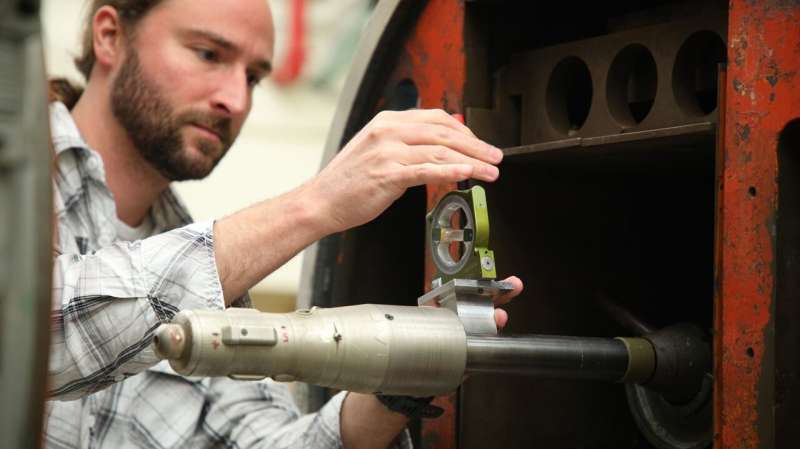
The MAV (Mars Ascent Vehicle) team recently completed wind tunnel testing at NASA's Marshall Space Flight Center in a facility that has been a critical part of NASA missions going all the way back to the Apollo program.
The first steps of the Huginn mission
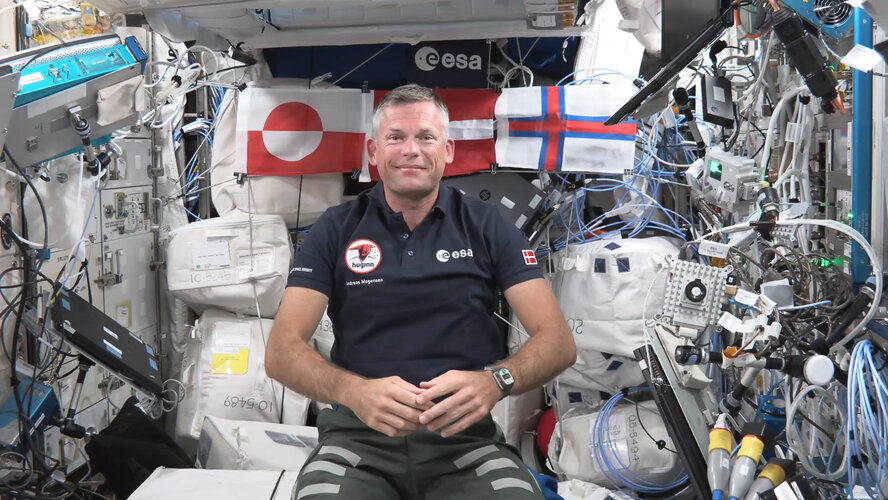 Video:
00:05:46
Video:
00:05:46
ESA astronaut Andreas Mogensen has begun his Huginn mission, turning the International Space Station into his home and workplace. After piloting on Crew Dragon Endurance as the first non-US pilot, Andreas has started performing European experiments and technology demonstrations with many more to come throughout the mission.
Andreas Mogensen: International Space Station commander
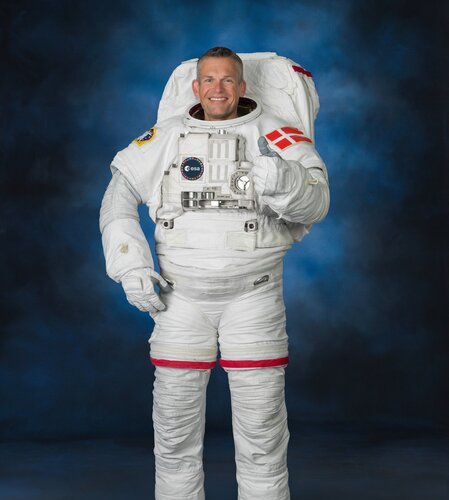
ESA astronaut Andreas Mogensen will become the commander of the International Space Station, the sixth European to take the role. Tune in to ESA WebTV channel 2 tomorrow, 26 September at 15:40 CEST (14:40 BST) to watch the ceremony when Andreas becomes the commander.
Turning up gravity for space fungi study
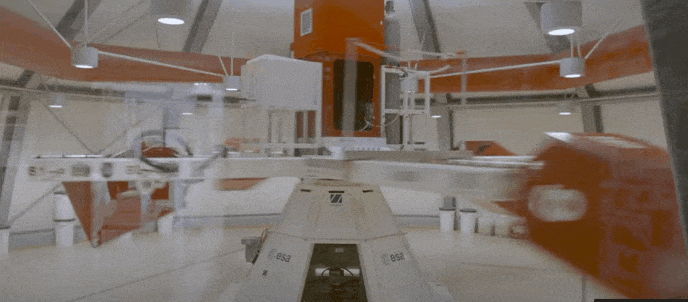
Fungi in space have been a plot point in Star Trek: Discovery, but they are also a very real problem for astronauts and space stations. United Nations co-sponsored testing by a team from Macau in China subjected fungi to hypergravity with ESA’s fast-spinning centrifuge.
NASA’s First Asteroid Sample Has Landed, Now Secure in Clean Room
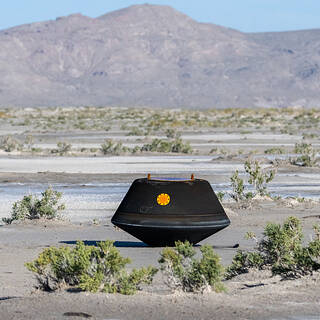 After years of anticipation and hard work by NASA’s OSIRIS-REx (Origins, Spectral Interpretation, Resource Identification and Security – Regolith Explorer) team, a capsule of rocks and dust collected from asteroid Bennu finally is on Earth. It landed at 8:52 a.m. MDT (10:52 a.m. EDT) on Sunday, in a targeted area of the Department of Defense’s Uta
After years of anticipation and hard work by NASA’s OSIRIS-REx (Origins, Spectral Interpretation, Resource Identification and Security – Regolith Explorer) team, a capsule of rocks and dust collected from asteroid Bennu finally is on Earth. It landed at 8:52 a.m. MDT (10:52 a.m. EDT) on Sunday, in a targeted area of the Department of Defense’s Uta Six of nine planetary boundaries now exceeded
 Copenhagen, Denmarl (SPX) Sep 19, 2023
A new study updates the planetary boundary framework and shows human activities are increasingly impacting the planet and, thereby, increasing the risk of triggering dramatic changes in overall Earth conditions.
For over 3 billion years, the interaction between life (represented by the planetary boundary, Biosphere Integrity) and climate have control
Copenhagen, Denmarl (SPX) Sep 19, 2023
A new study updates the planetary boundary framework and shows human activities are increasingly impacting the planet and, thereby, increasing the risk of triggering dramatic changes in overall Earth conditions.
For over 3 billion years, the interaction between life (represented by the planetary boundary, Biosphere Integrity) and climate have control Harnessing high-dimensional quantum states
 Quantum technology's future rests on the exploitation of fascinating quantum mechanics concepts - such as high-dimensional quantum states. Think of these as states basic ingredients of quantum information science and quantum tech. To manipulate these states, scientists have turned to light, specifically a property called orbital angular momentum (OAM), which deals with how light twists and turns
Quantum technology's future rests on the exploitation of fascinating quantum mechanics concepts - such as high-dimensional quantum states. Think of these as states basic ingredients of quantum information science and quantum tech. To manipulate these states, scientists have turned to light, specifically a property called orbital angular momentum (OAM), which deals with how light twists and turns Fast-tracking fusion energy's arrival with AI and accessibility
 As the impacts of climate change continue to grow, so does interest in fusion's potential as a clean energy source. While fusion reactions have been studied in laboratories since the 1930s, there are still many critical questions scientists must answer to make fusion power a reality, and time is of the essence.
As part of their strategy to accelerate fusion energy's arrival and reach carbo
As the impacts of climate change continue to grow, so does interest in fusion's potential as a clean energy source. While fusion reactions have been studied in laboratories since the 1930s, there are still many critical questions scientists must answer to make fusion power a reality, and time is of the essence.
As part of their strategy to accelerate fusion energy's arrival and reach carbo NASA's first asteroid samples land on Earth after release from spacecraft
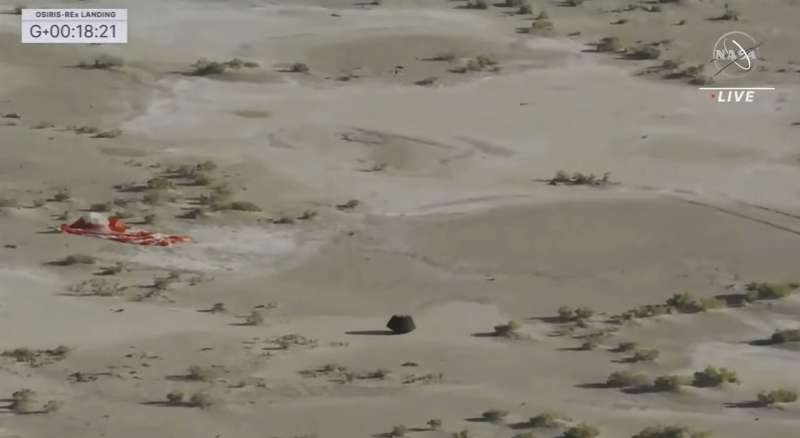
NASA's first asteroid samples fetched from deep space parachuted into the Utah desert Sunday to cap a seven-year journey.
In a flyby of Earth, the Osiris-Rex spacecraft released the sample capsule from 63,000 miles (100,000 kilometers) out. The small capsule landed four hours later on a remote expanse of military land, as the mothership set off after another asteroid.
"We have touchdown!" Mission Recovery Operations announced, immediately repeating the news since the landing occurred three minutes early.
FAA proposes rule to reduce space debris as SpaceX launches 22 satellites into orbit
 SpaceX launched 22 satellites for its Starlink "constellation" into low-Earth orbit late Saturday night as the Federal Aviation Administration proposed a new rule to reduce space debris from commercial flights.
The satellites were launched by a Falcon 9 rocket from Space Launch Complex 40 at Cape Canaveral Space Force Station in Florida.
The first stage booster landed on a barge
SpaceX launched 22 satellites for its Starlink "constellation" into low-Earth orbit late Saturday night as the Federal Aviation Administration proposed a new rule to reduce space debris from commercial flights.
The satellites were launched by a Falcon 9 rocket from Space Launch Complex 40 at Cape Canaveral Space Force Station in Florida.
The first stage booster landed on a barge 
